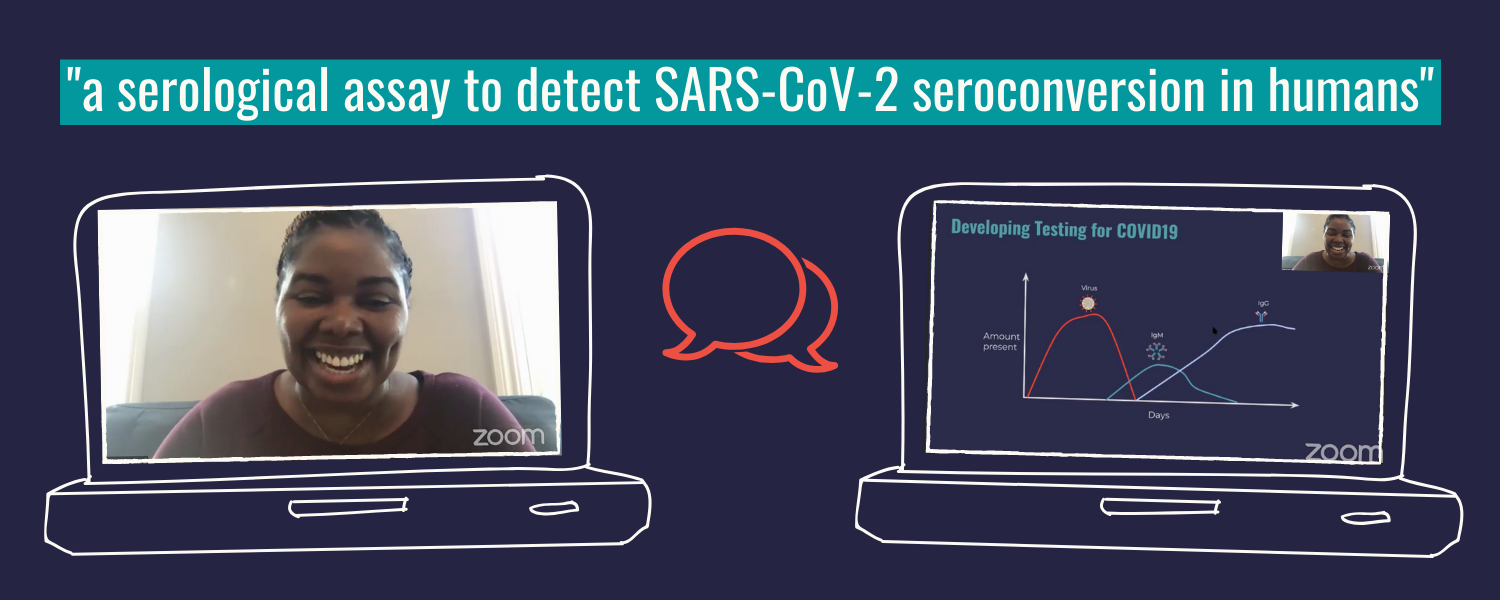D4P: Testing for COVID-19 Immunity
D4P webinar streamed April 15, 2020

Paper: A serological assay to detect SARS-CoV-2 seroconversion in humans
Download the accompanying discussion guide here.
In this installment of D4P, Dr. Odaelys Pollard breaks down a scientific report describing the development of an important diagnostic tool for COVID-19. This paper, submitted to the pre-print server, medRxiv, in March 2020, was made possible by the collaboration of many scientists and scientific institutions, representing the US, Finland, Switzerland, and Australia.
The style of scientific reasoning used in this paper:
What you need to know:
COVID-19 is a disease that is caused by a member of the coronavirus family, SARS-CoV-2. Healthy human immune systems will produce a large amount of a specific antibody that can neutralize the SARS-CoV-2 virus. If scientists can detect these antibodies in a person’s blood, it means they have “beat” the virus (and are likely immune to SARS-CoV-2). However, we cannot determine how many people have these antibodies without a test that works. This paper describes how a group of scientists worked to develop this test in order to measure SARS-CoV-2-specific antibodies in our blood.
The following are the key terms defined in this D4P presentation, and are important for understanding the data presented by Dr. Pollard.
Antibodies
Antibodies are proteins produced by our immune cells (b lymphocytes) in response to infection. These molecules engage in a chemical interaction with a specific component found on a “foreign” invader, such as a virus, in order to get rid of it.
Antigens
An antigen is a specific molecular piece of a “foreign” invader, such as a virus, that turns on our immune response, and is recognized by an antibody.
Enzyme Linked Immunosorbant Assay (ELISA)
An ELISA is an analytical biochemical test uses enzymes to detect the presence or absence of specific antibodies. ELISAs are commonly used to detect a number of different human diseases and conditions, such as over-the-counter tests for HIV and pregnancy.
How these terms fit into the paper
The scientists who conducted this study created an ELISA to detect antibodies in people who have recovered from COVID-19. They synthetically engineered an antigen to mimic the spike protein found on SARS-CoV-2, which can effectively bind the antibodies produced in response to SARS-CoV-2 infection. If a person has antibodies against SARS-CoV-2, this test would “light up” and let everyone know that an immune response has indeed taken place. This is helpful because it will allow us to understand how many people in our population have antibodies against this virus, and are therefore immune.
Research Updates
Since this presentation, the COVID-19 ELISA produced by this group has been FDA approved, and is being currently used to test for COVID-19 immunity among the people who live in NYC. You can read the certification letter from the FDA here, and learn more about how this test is being administered here.
About Our D4P Fellow
Odaelys Walwyn Pollard, PhD (she/her)
Dr. Pollard is the scientist educator for RockEDU Science Outreach. Before joining RockEDU, Odaelys worked on a variety of different initiatives around science education and outreach, and is a champion for equitable access to science. Odaelys is a trained microbiologist/immunologist, having earned her PhD at New York Medical College, in Westchester NY.

